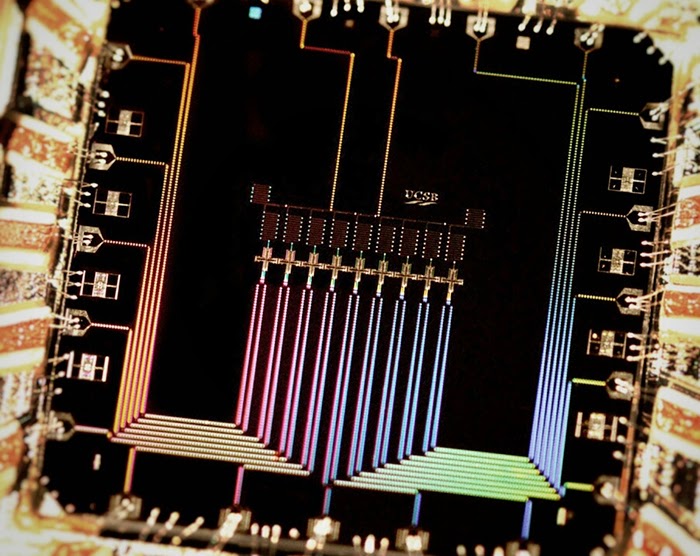Topics: Modern Physics, Nanotechnology, Quantum Computer, Quantum Mechanics
A system of nine quantum bits (qubits) that is robust to errors that would normally destroy a quantum computation has been created by researchers at the University of California, Santa Barbara (UCSB) and Google. The device relies on a quantum error-correction protocol, which the team says could be deployed in practical quantum computers of the future.
In principle, powerful quantum computers can be built from a collection of qubits. For a qubit based on an electron, for example, these states would be "spin up" and "spin down", with one state representing a logical "1" and the other "0". Each qubit can be in a superposition of two quantum states at the same time and N qubits could be quantum-mechanically entangled to represent 2N values simultaneously. This would lead to the parallel processing of information on a massive scale not possible with conventional computers.
However, quantum computers are extremely fragile, and a computation can be easily destroyed by "bit errors" that occur when external noise in the environment affects the values of the qubits. While it is proving very difficult to create practical qubits that are robust enough to eliminate such errors, an alternative approach is to accept that errors will occur and to try to correct for them as the quantum calculation progresses.
Now, UCSB's John Martinis and colleagues have taken an important step forward by demonstrating repetitive error correction in an integrated quantum device that consists of nine superconducting qubits. Each qubit is a small circuit consisting of a capacitor and a Josephson junction, and is made from an aluminium film evaporated onto a sapphire substrate. The qubit can be thought of as an artificial atom with information stored in its quantum states.
Physics World: How to make a tougher quantum computer, Belle Dumé, nanotechweb.org

Comments